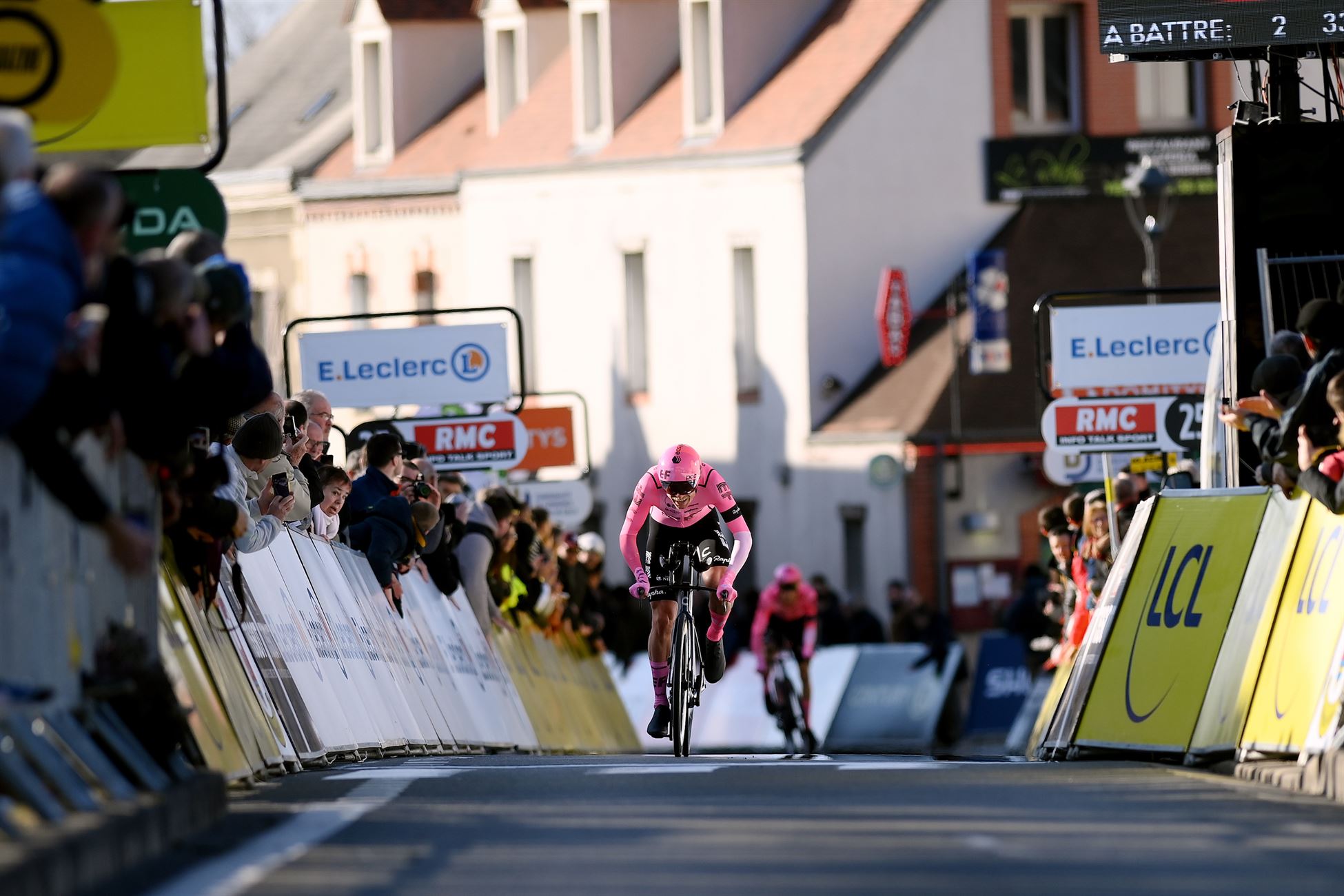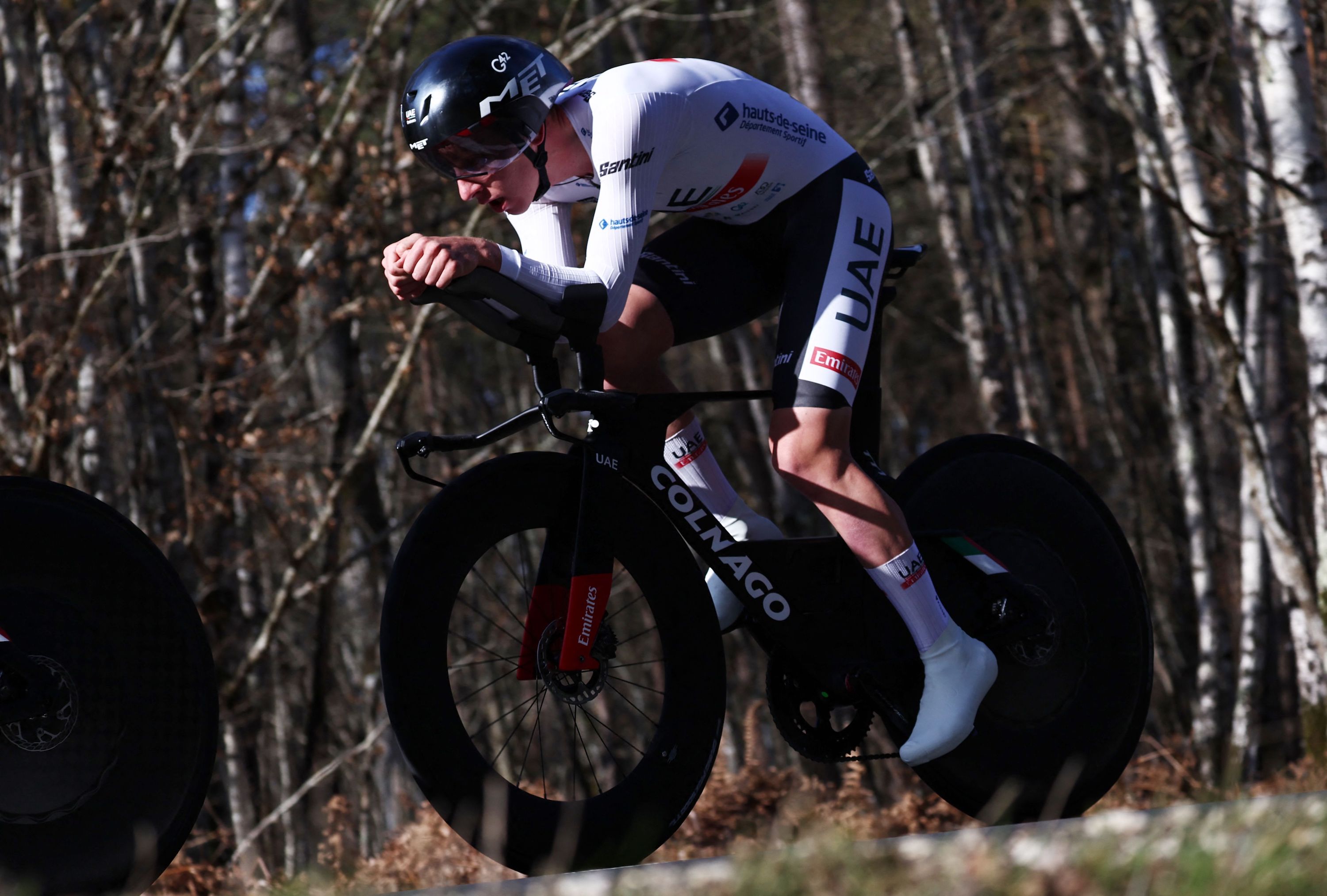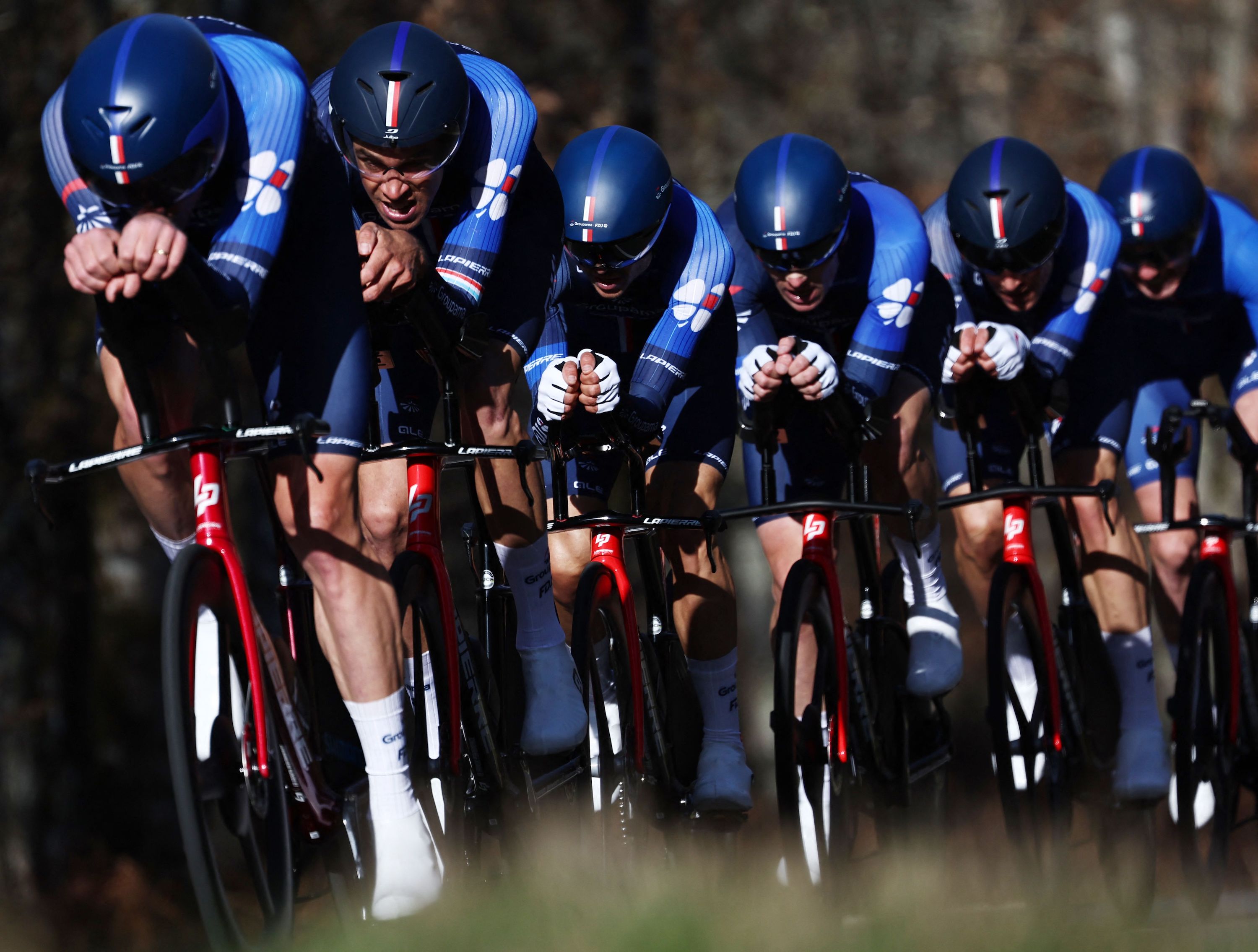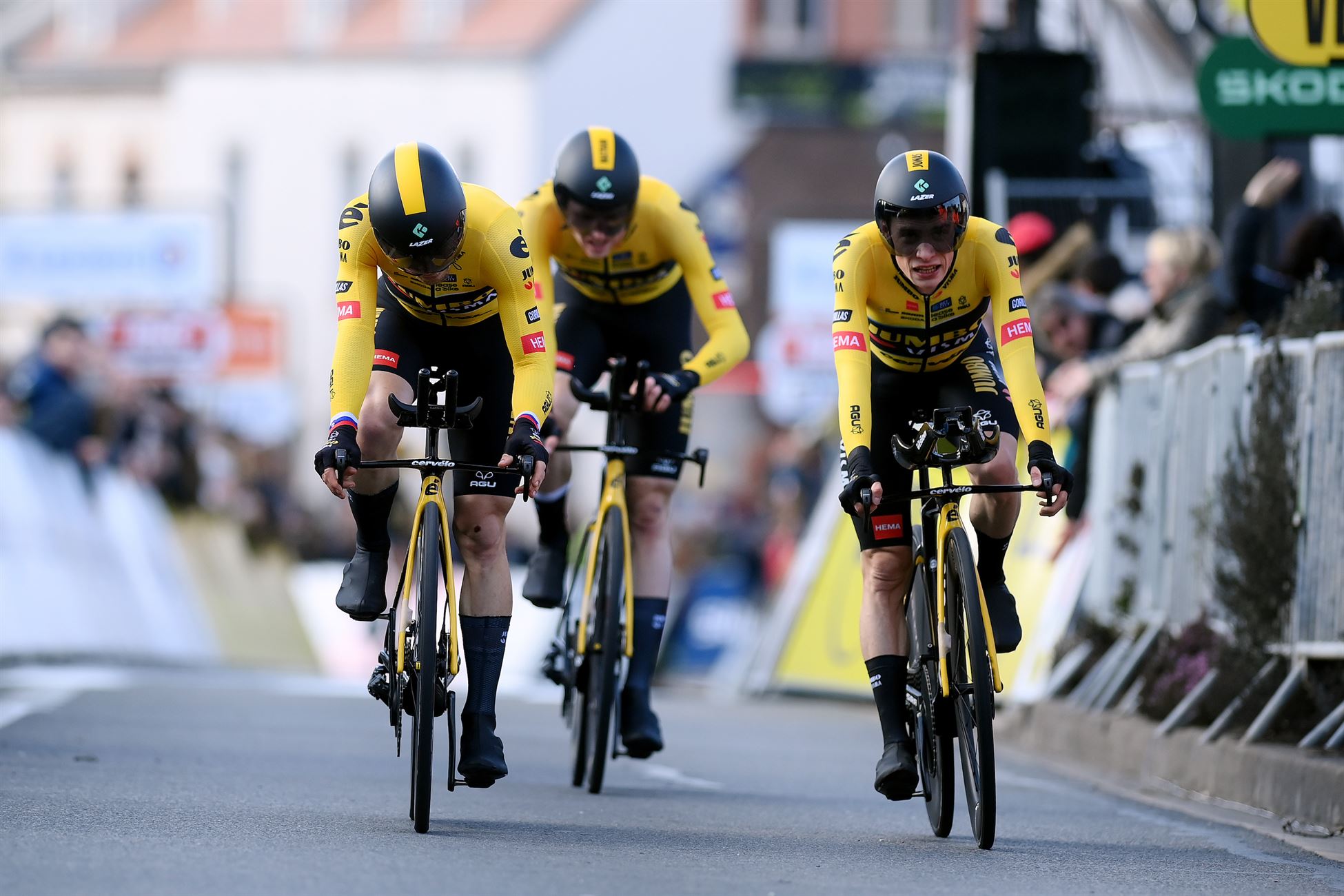
In his 1972 book The World Turned Upside Down: Radical Ideas During the English Revolution, the Marxist historian Christopher Hill sought to show that the mid 17th century in England was not just a time of civil war but a time of fresh, new ideas, that might have stuck, but didn't.
Ordinary people tried to "impose their own solutions to the problems of their time", even if many of these solutions did not last; in an era of anarchy, the world seemed turned upside down, but it did not continue.
On Tuesday, Paris-Nice's organisers attempted to impose their solution on the tricky format of the team time trial, changed the rules. However, while the race could have been turned upside down, it was not a new beginning.
On a day of nationwide strikes in France, there was not a revolution on the roads of the Loiret department, as the stage three funky team time trial stuck largely to type, but the race did see squads and individual riders try different things.
The change to the rules of the 32.2km TTT, with time being taken on the first rider rather than the fourth or fifth, meant that some riders finished alone, while others were part of smaller groups. Very few teams crossed the line in a larger group, as would have been standard in the format.
“We want to avoid that one team with the majority of its riders is at the top of the rankings,” race director François Lemarchand said when unveiling the route earlier this year.
However, Jumbo-Visma won and ended the day with four riders inside the top ten - Nathan van Hooydonck, Jonas Vingegaard, Jan Tratnik and Tobias Foss - proving that having a team of strong rouleurs is still the best course of action, despite the rule change.
"It's incredible to have so many strong guys with me. We are very happy with the victory today," the Dane said post-finish. "I'm very happy and thankful for the team I have.
"We don't train it [the TTT] so often. We trained it a few times before today, but I think we did a good job both in the training and in the race. We went super fast and it was quite smooth for us. It was very good."
It was different to an ordinary team trial, though, with Vingegaard just finishing with Van Hooydonck and Tratnik for company, there was no anxious wait for a fourth man to set the time.
This was the point that Bahrain-Victorious' Jack Haig made after his effort, that it reduced the stress, even if it didn't change most people's attempts: "On a course like this it doesn’t make a whole load of difference. It makes it a lot less stressful at the end, though."

Vingegaard's great rival Pogačar, who he will surely battle over the general classification with this week, finished alone, in fact, Mikkel Bjerg having already done all he could for his UAE Team Emirates leader.
The Slovenian used his powerful sprint, as has been seen this week already in the bonus sprints, to limit his eventual losses to Vingegaard and Jumbo-Visma, there was no need to stay with his team inside that final kilometre.
As he pointed out ahead of his effort, however, this was not weird for him, as this was just the second TTT he had done as a professional anyway.
"Special rule? Or normal rule?" Pogačar asked. "I didn’t do a lot of TTTs in my life, just two, and just one as a professional. I’m really excited, but I don’t know what to expect. We will give 100%. Full gas."

Groupama-FDJ's Stefan Küng poured cold water over the idea that the change to the format would have any great impact on his team's approach.
"We will try and stay together for as long as possible anyway because this is how you go as fast as possible in a team time trial," he explained.
"I think they [race organisers] are imagining it will be something crazy special, and in the end it will be the same scenario again. We will see many teams being four/five riders 2km to go. Until then we will see a team time trial."
In the end, just Küng and his GC leader David Gaudu finished together.
Magnus Cort (EF Education-EasyPost) was another to finish alone in Dampierre-en-Burly, flying off his last man within the final kilometre to sprint for the line. It ensured that he claimed the yellow leader's jersey, although he missed out on the win by just one and a half seconds.
"It is always a difficult discipline," the Dane said. "I quite liked the course here, not very technical but still some rolling hills so not completely flat and and easy. It was really about catching the speed and sitting there doing good turns and getting some good recovery in the wheels and getting ready for your next turn."

What the change did mean was that riders could be burned through sooner rather than later in the service of their leader; Simon Yates of Jayco AlUlA, whose team came third on Tuesday, said that he was doing just 20 second pulls while his teammates were on the front for over a minute.
This team time trial was the first at Paris-Nice since 1993, but on Tuesday's evidence, it won't be banished for another thirty years. Sure, one team might still dominate the general classification, but it is not as set as it would have been under normal TTT rules.
Sadly, for most of the riders this will be the last TTT this year, but race organisers will surely see the potential in the tweaked format. Throw in a hill or two and things would get really interesting.
Imagine the chaos at a Grand Tour if teams had to decide to stick with one GC rider over another early on in a race, or if a squad was blown apart quite early on. That might see the world turned properly upside down.

